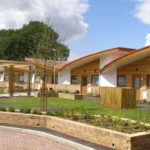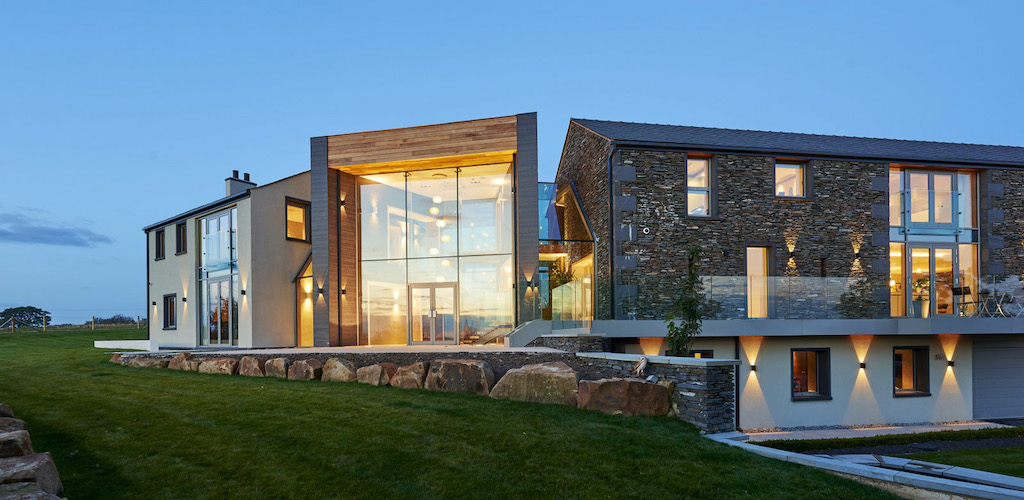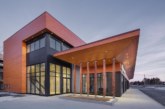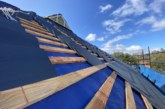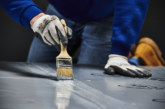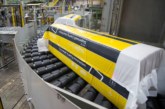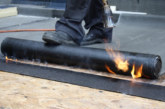Could Insulating Concrete Formwork hold the key for your next development?
Many agree that the current COVID-19 pandemic will have a long-lasting impact on the UK’s economy and construction industry. However, out of the disruption should come the opportunity to evaluate and reassess the ‘usual’ and with Boris Johnson announcing plans to “build back greener” now is the time for developers to consider how Modern Methods of Construction can benefit their project. ICFA chairman Christopher Stride discusses how Insulating Concrete Formwork could provide one solution for the UK in meeting “build back greener” targets.
Climate change is an important issue which everyone must address, and the construction industry has also had to consider new and alternative options. With recent global events changing every aspect of life the focus has now turned sharply towards sustainable development with the Government asking to “build back better, build back greener, build back faster.”
So are there alternative building materials which developers can use to meet this challenge?
Meeting Environmental Challenges
It has been estimated that 90% of a traditional building’s environmental impact occurs not during construction, but during its lifetime. A recent report by the Committee on Climate Change found that energy usage in UK homes accounts for about 14% of UK climate-altering emissions and this figure is rising.
With homes significantly contributing to emissions the Whole Life Carbon focus is now shifting to minimise the carbon emissions associated over the entire life cycle of a building. This is the area where a MMC system like Insulating Concrete Formwork really comes into its own.
For a long time ICF construction has been seen in the UK as the preserve of self-builders but now the construction industry is starting to recognise the benefits it can offer. ICF is an in-situ concrete building method using, hollow block components that fit together without intermediate bedding materials such as mortar. The blocks connect to provide a formwork system into which concrete is poured. They are formed of an insulating material, either expanded polystyrene (EPS) tied together with ties or a mixture of mineralised recycled wood chips with cement known as woodcrete blocks. Once the concrete has cured the whole system becomes a high-strength monolithic structure with the formwork remaining in place to give exceptional insulating performance.
It is this high-density structure which give ICF forms an advantage over traditional building systems. When comparing different building materials modern cavity walls attain U values of around 0.4, whilst the most up to date timber framed builds claim U values of 0.27. ICF can achieve values as low as 0.10 representing a significant saving in energy use for heating, typically saving 70% on heating costs, with some homeowners reporting that they spend almost nothing on heating throughout the year.
Not only does ICF have high thermal insulation properties, but the structure of the building is monolithic, ensuring excellent levels of airtightness. ACH can be as low as 0.33m³/hr.m², giving an even temperature throughout without draughts or cold spots. ICF designs typically have very low levels of thermal bridging, improving the performance of the ICF home further. The technology out-performs the current Building Regulations and meets the requirements of the Code for Sustainable Homes Star Level 3. Of course when used with other green technologies, such as ground source heat pumps, wind turbines, and solar panels, an ICF home can be completely carbon neutral.
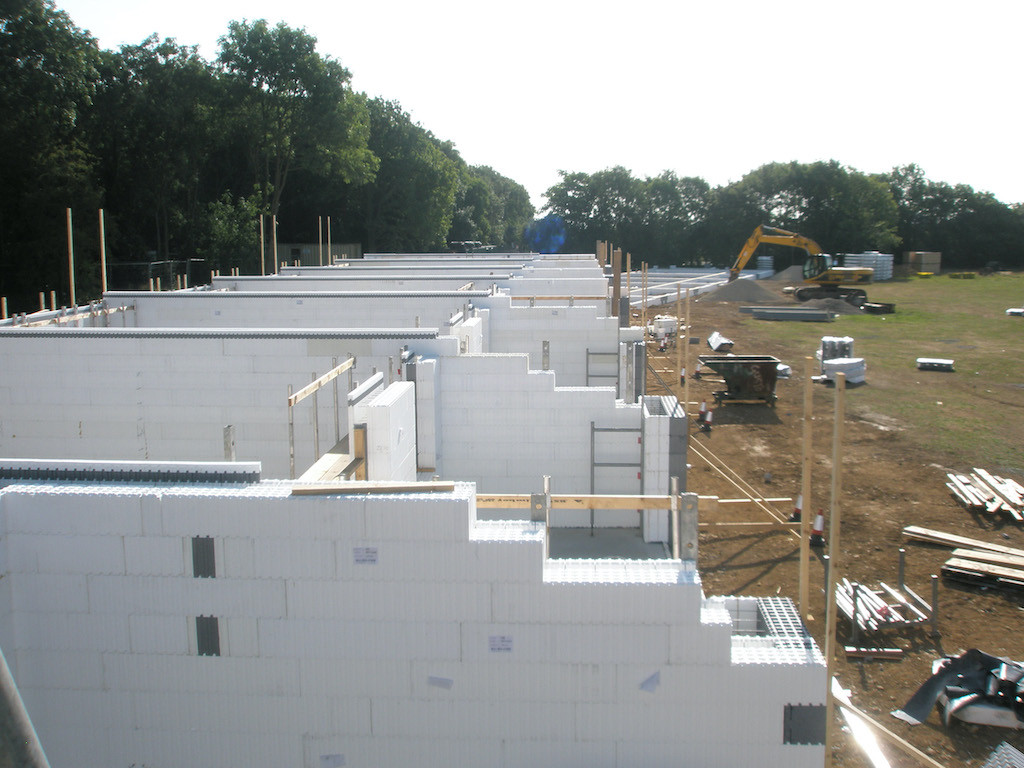
Construction without Disruption
ICF has grown in popularity and the system is now used in a range of applications including commercial, multi-storey, educational and medical facilities. The inherent flexibility of ICF unlocks huge creative potential and allows designers to introduce innovative and unusual designs with complex and curved structures. ICF is able to accommodate 90- and 45-degree corners, brick corbel forms, brick corbel extensions, T-form units, double-taper top forms and factory-cut radius forms. With the strength and versatility of ICF the build possibilities are endless and the system is ideal for above and below grade walls.
Construction of an ICF property is quick, clean and very low waste. This technique provides a safer working environment and creates an ideal platform to train apprentices new to the industry. The forms are easily carried and movements of heavy plant on site are dramatically reduced. The preformed blocks fit together far more quickly than courses of bricks or concrete blocks without the need for specialised contractors. With the insulating formwork blocks custom made offsite and transported to site for assembly, the inefficiencies and delays that can affect onsite construction are minimised.
Although quick and easy to build there are stages which are critical to the success of the build, including the concrete pour. Each ICF system varies slightly and we recommend developers and housebuilders discuss the build with their ICF supplier.
As the country starts to get back building, adopting greener options should become a key consideration for the construction industry and with alternative systems such as ICF we can help meet these targets.

